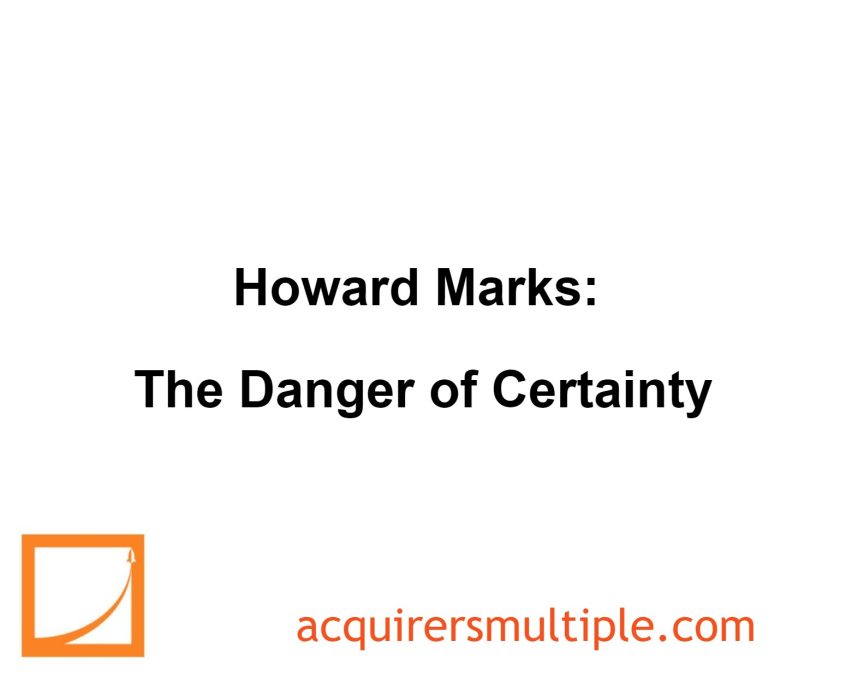During their latest discussion on The Insight, Howard Marks, Armen Panossian, and David Rosenberg discuss the current market environment. Here’s the main point from Howard Marks:
- Uncertainty in the Current Market: Marks highlights the numerous uncertainties in the current market environment, including geopolitical tensions, climate change, economic growth, inflation, and Federal Reserve actions. He emphasizes that the preoccupation with predicting the future introduces a great deal of uncertainty.
- Healthy Doubt vs. Dangerous Conviction: Marks argues that it’s healthy when people acknowledge uncertainty and express doubt about the future. He believes that the danger lies in the conviction that one knows what’s going to happen, which can lead to bubbles and crashes in the market.
- 2020 Economic Events and Cyclicality: Marks discusses the events of 2020, such as the pandemic, shutdowns, and relief programs, which were non-economic but had a significant impact on the economy. He questions whether 2020 constituted a recession and how it affects the traditional cyclical framework.
- Difficulty in Economic Forecasting: Marks admits the difficulty in determining where the market is in the cycle, especially given the uncertainties surrounding economic events and policy actions. He echoes Warren Buffett’s sentiment that macro forecasting is not knowable.
- Economic Outlook: Marks maintains a generally positive outlook on the economy but acknowledges the uncertainty. He predicts that the next move in rates is likely down but remains cautious about the potential trajectory.
Here’s an excerpt from the discussion:
Marks: Well, I think that people are uncertain. First of all, we have an incredible number of things happening in the general environment. We have Ukraine, Gaza, climate change, presidential election that the polls say the majority of Americans want a different choice, incredibly large number of macro-exogenous uncertainties.
Then we have the navigating of the environment vis-a-vis inflation, rates, Fed, economic growth. People are so preoccupied now with the Fed and its machinations and guessing at what’s next and when, that I think that that preoccupation introduces a great deal of uncertainty, kind of almost separate and apart from the questions of economic growth, inflation and employment.
So people who don’t accept that the future is unknowable, people who want to be able to know the future, feel that they’re on shaky ground. My view is we’re always on shaky ground in that regard.
And I said in my review of 2023, which went to the clients of Oaktree only, that we have two kinds of climates. The times when the people think they know what’s going to happen and the times when they think the future is uncertain.
Now, as you know, I think that when they think they know what’s going to happen, they’re wrong. And when they are uncertain, they’re right. So I think it’s the conviction that they know the future, that’s the more dangerous of the two.
Now, I didn’t invent that concept. It was Mark Twain who said, “It ain’t what you don’t know that gets you into trouble. It’s what you know for certain that just ain’t.” Right. So I think it’s healthy when people say, I’m worried. I think the future is uncertain.
It’s much more dangerous when people say, I’m convinced if large numbers, if a large plurality says, I’m convinced that I know what’s going to happen, and they bet on it heavily, and the bets all run in one direction, that’s how you get bubbles and crashes. I think that doubt is much more likely to produce outcomes closer to the middle.
You can read the entire transcript here:
For all the latest news and podcasts, join our free newsletter here.
Don’t forget to check out our FREE Large Cap 1000 – Stock Screener, here at The Acquirer’s Multiple:



